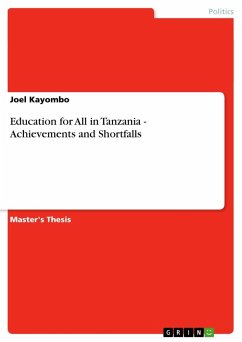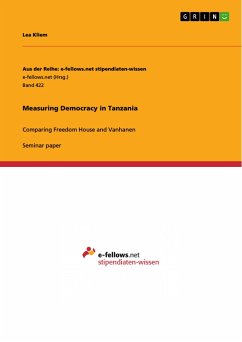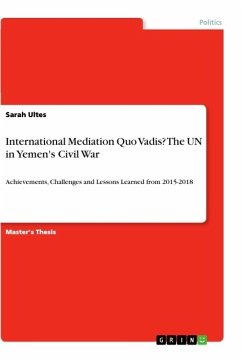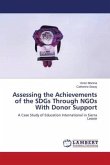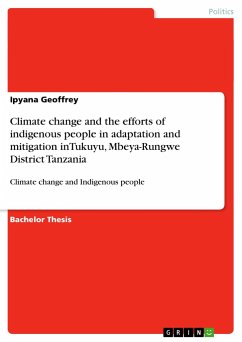Master's Thesis from the year 2011 in the subject Politics - Region: Africa, East China University of Science and Technology (East China Normal University - International Center of Teacher Education), course: International Master of Education in Educational Leadership and Policy, language: English, abstract: Meeting basic learning needs of all children, youths and adults is the ultimate target of most of the international and national communities as well as governments across the world. Tanzania, like all other UNESCO member states, has committed to EFA goals defined in the Dakar Declaration on Education for All and the Framework for Action. This study focused on reviewing the achievements made and shortfalls encountered by Tanzania (Mainland) towards attaining the six EFA goals since the on-set of the new millennium. The study made use of documentary sources in which the researcher systematically and objectively researched evidences relevant to the study question. The analysis of the six EFA goals were categorized into three major themes namely early childhood care and education, universal primary education and gender and learning programmes for life skills and literacy. The categorization of these themes was based on the fact that quality (EFA goal 6) cuts across all EFA goals. The results indicated that the country has attained momentous progress in universalizing primary education, closing the gender gap and meeting the learning needs of youth and adults through non-formal delivery modes. On the other hand, it has made little progress in providing comprehensive early childhood care and education. The study further identified critical shortfalls facing the implementation of the EFA goals in the country. Among the major shortfalls are ensuring comprehensive early childhood care and education, quality education, education equity, learning programmes for disadvantaged population groups, provision of relevant literacy and life skills and management of the EFA statistics. This indicates that, still there is a long way to go in order to fully meet the learning needs of all children, youths and adults. Finally, the study recommends the country to undertake broad reflection on policies and practices to make the EFA goals viable.
Hinweis: Dieser Artikel kann nur an eine deutsche Lieferadresse ausgeliefert werden.
Hinweis: Dieser Artikel kann nur an eine deutsche Lieferadresse ausgeliefert werden.

